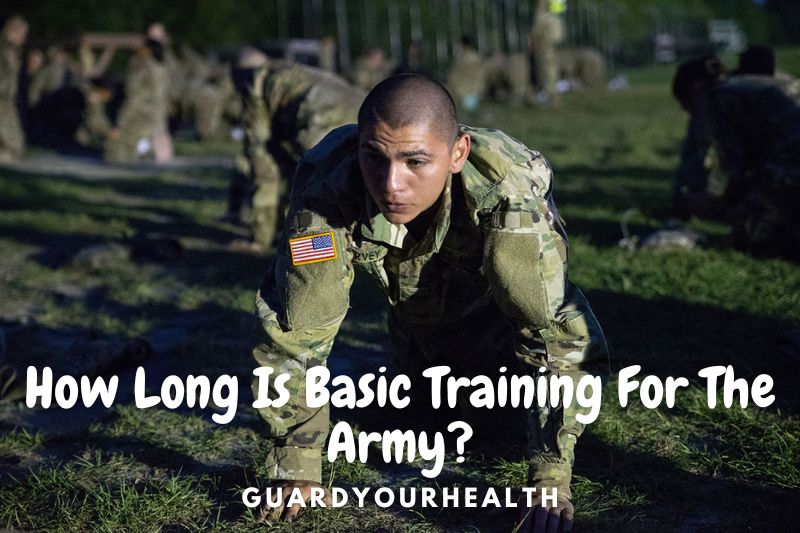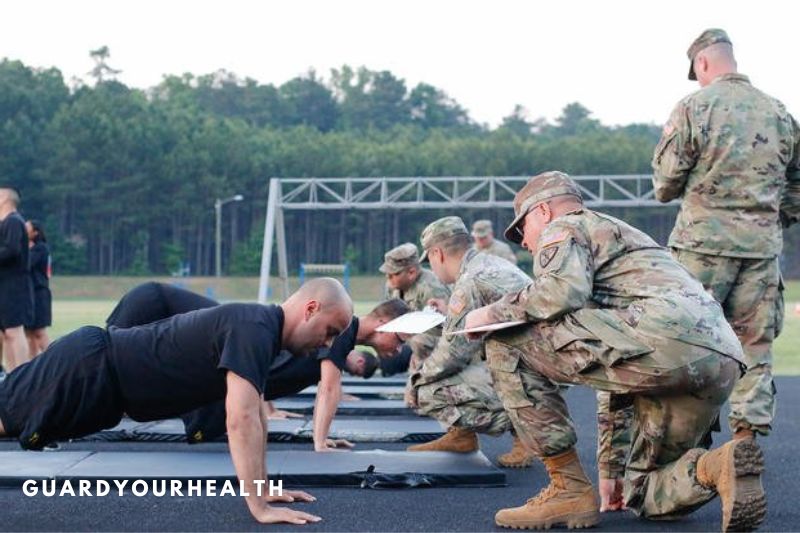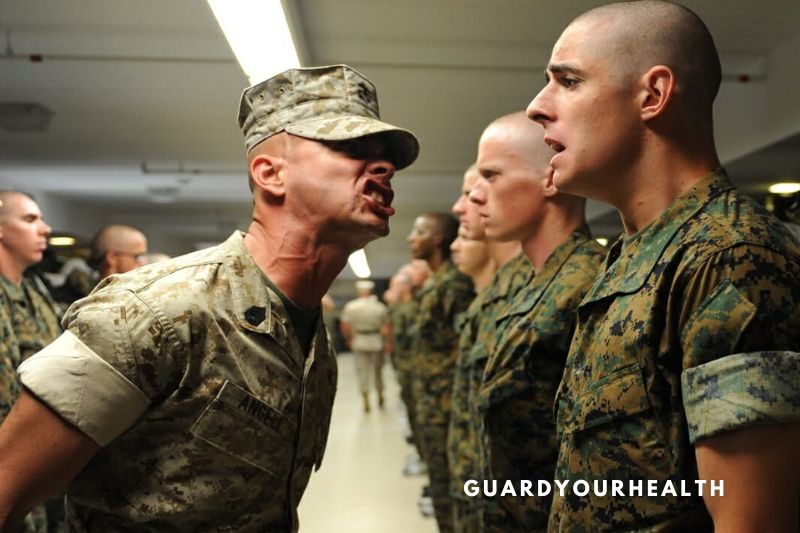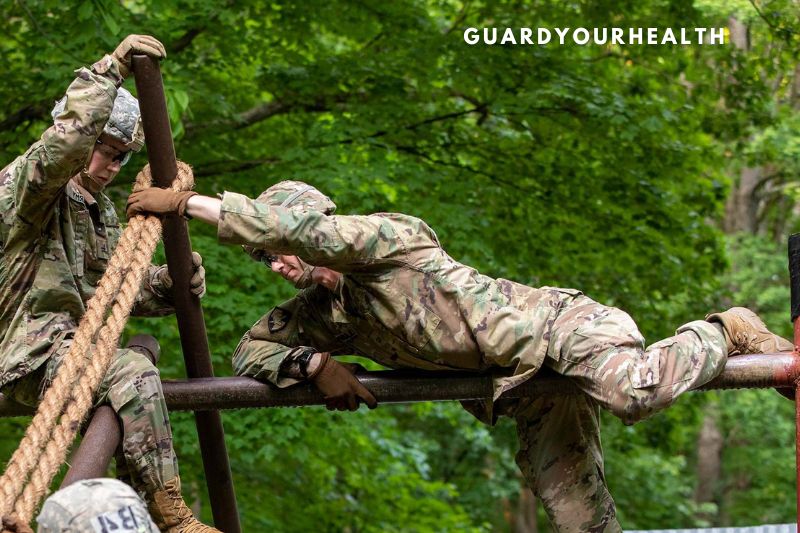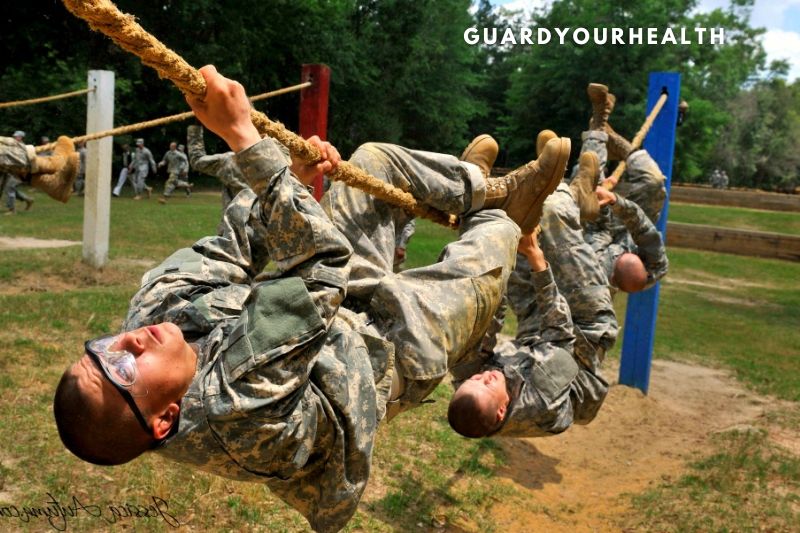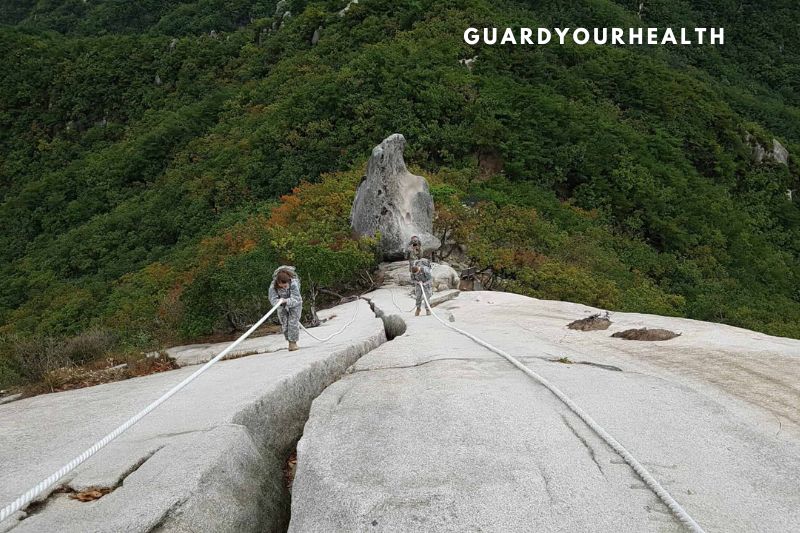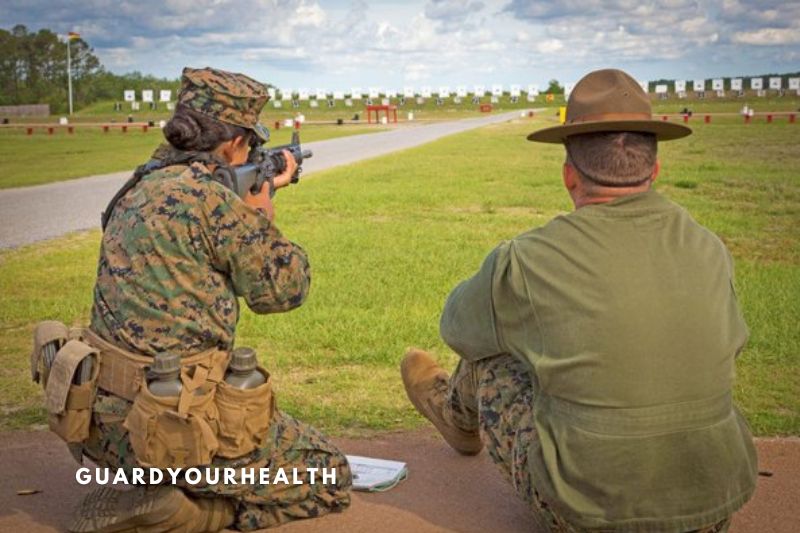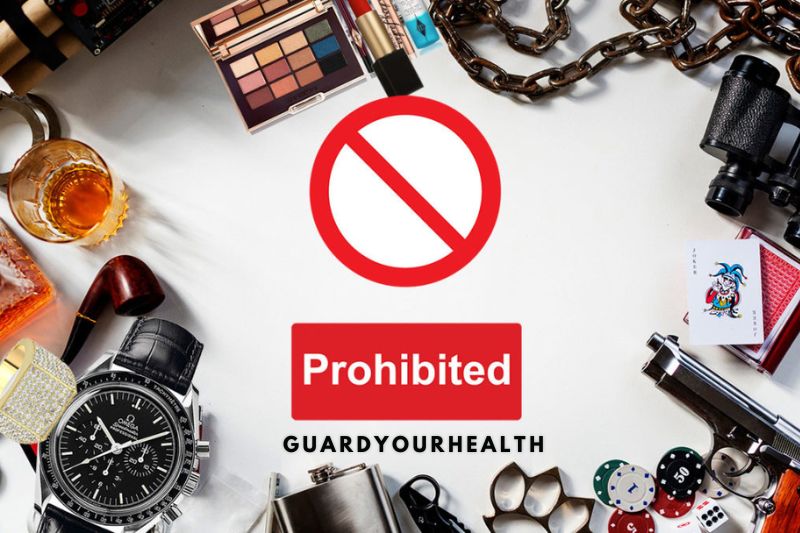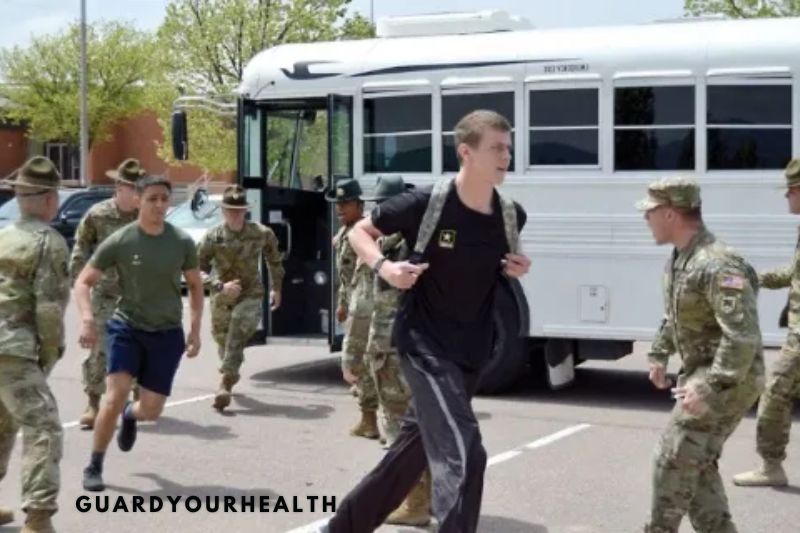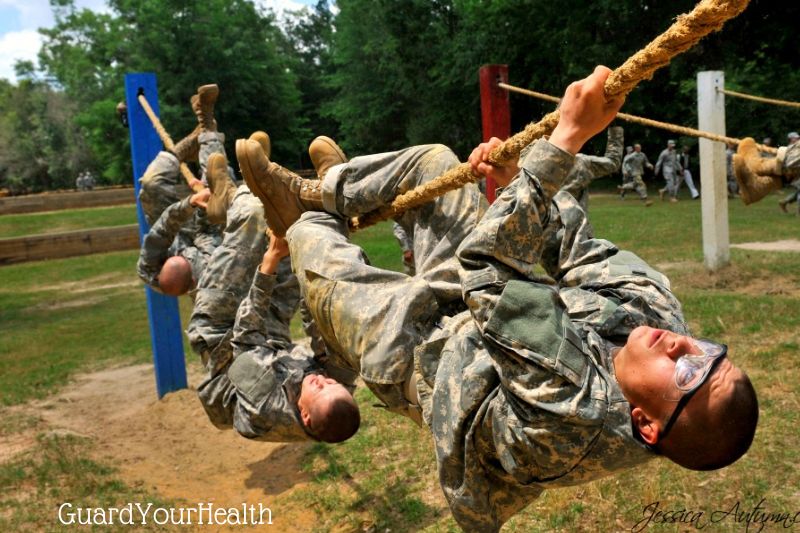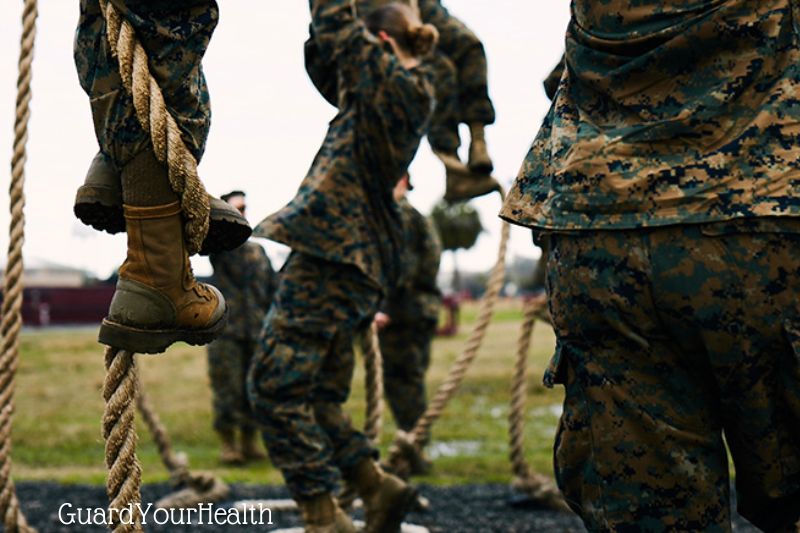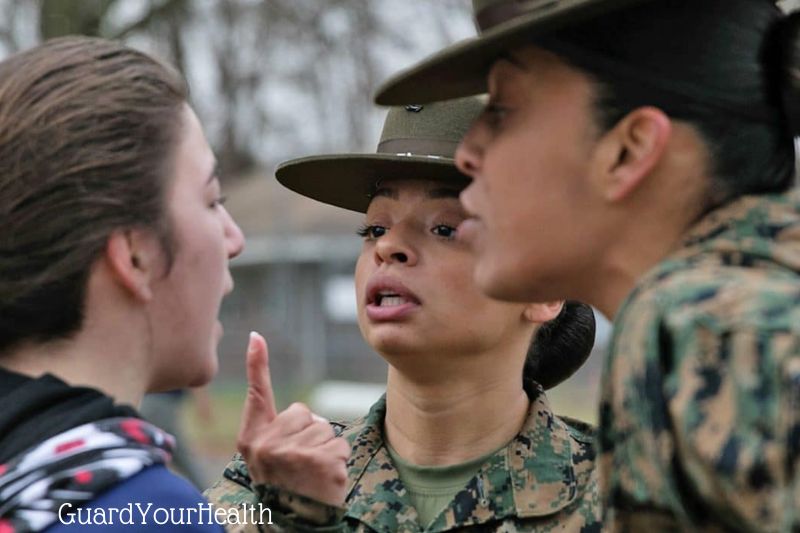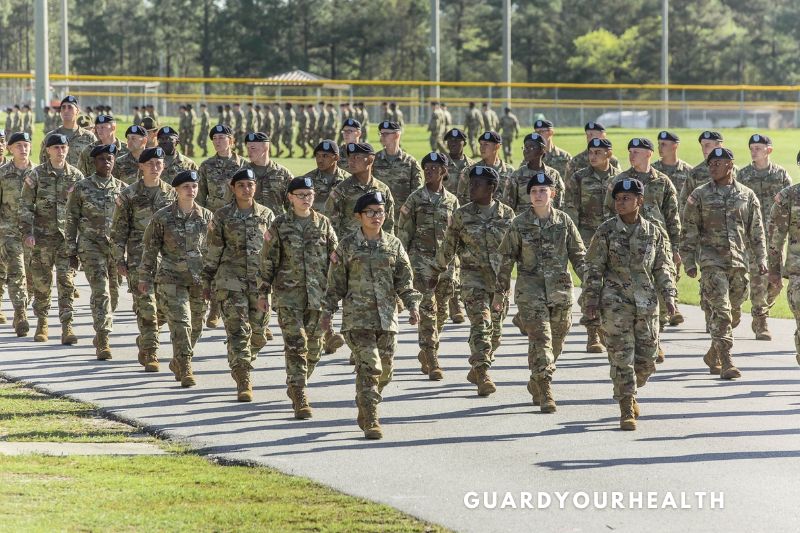How long is basic training for the army? Basic training for the Army is nine weeks long. However, depending on their chosen career path, soldiers must complete additional training after basic training. For example, infantry soldiers may attend an Infantry One Station Unit Training (OSUT), including basic and advanced individual training.
Army Basic Training Requirements
You wouldn’t take your driver’s test if you couldn’t parallel park, would you? Then, ideally, you realize that increasing your physical strength before entering formation for the first time is a good idea.
Those standards will be tested during Week Zero, often known as Reception Battalion. If you fail this first exam, you will be sent to a fitness training firm for extra training. You will be given two opportunities every week to pass the exam.
The official Army website provides a training plan to assist recruits and troops prepare for physical fitness exams they will encounter in basic training and throughout their careers. You may also download the Army’s Pocket Physical Training Guide for information on gear, injury prevention, conditioning drills, and other topics.
Other physical tests will be administered to you during your reception week, but there won’t be much time to prepare for vision, hearing, and blood tests, among others. However, being in the finest physical condition possible before basic will be a benefit you’ll enjoy from Day 1.
How Long Is Army Basic Training?
The whole Army basic training cycle lasts roughly ten weeks and is separated into three phases: Red, White, and Blue, each lasting about three weeks. After completing the Blue Phase’s final examinations, you’ll go to the graduation ceremony, where you’ll be able to celebrate your achievements with your friends and family.
Where is Army Basic Combat Training?
The Army’s five basic combat training sites are as follows:
- Georgia’s Fort Benning
- South Carolina’s Fort Jackson
- Missouri’s Fort Leonard Wood
- Oklahoma’s Fort Sill
- Kentucky’s Fort Knox
Your journey determines where is basic army training your BCT:
Enlisted Members
At the same installation, you will get extra specialized training after your first training. Your specialty decides where you will attend boot camp.
Women Recruits
Your training army boot camp locations will be Fort Leonard Wood, Fort Sill, or Fort Jackson, providing gender-integrated training.
Officer Candidates
You’ll finish basic military training at Fort Benning and attend Officer Candidate School.
The Phases Of Basic Combat Training
Yellow Phase
(Weeks 1-2)
Introduction To The Army
The Yellow Phase is the first phase of Basic Combat Training and focuses on character development, performance enhancement, and acclimating to Army life. During this period, you will get your general orientation as well as multiple sets of clothing and learn how to behave yourself as a Soldier. Male soldiers will also get an Army haircut.
You’ll be required to know the Warrior Ethos, which are the key concepts that Soldiers live by and apply throughout operations to defend their fellow Soldiers and themselves, as well as the Soldier’s Creed.
You will also study basic first aid, engage in sexual harassment and sexual assault awareness and prevention programs, and be trained in suicide prevention. You’ll also learn about military conventions and etiquette, physical fitness, military strategy, personal budgeting, and other life skills.
Red Phase
(Weeks 3-4)
Discipline, values, and collaboration
This phase’s objectives include increasing your confidence and boosting your general fitness. As part of an obstacle course exercise, you will rappel from a 50-foot wall in addition to marching and land navigation. You’ll also be trained to prepare for chemical and biological assaults and utilize a protective mask appropriately.
During The Hammer, a one-day, one-night training event, you’ll employ all of the activities you’ve learned up to this point, such as correctly applying camouflage paint, guarding a perimeter, and other essential abilities to be a successful Soldier.
White Phase
(Weeks 5-7)
Learning the Fundamentals of Soldiering
Hello and welcome to the gun range. During this phase, you will begin practicing with your weapon. You will show rifle marksmanship fundamentals, maintenance, and engaging targets at varying distances. You’ll also learn hand-to-hand combat and how to prioritize several targets throughout this phase. When you finish, you will get the Marksmanship Qualification Badge.
You will continue your physical fitness and land navigation training in addition to your marksmanship training.
The White Phase culminates with The Anvil, a two-day, two-night outdoor training exercise. It improves your ability to react to chemical and nuclear threats while also assisting you in mastering efficient teamwork and refining your medical knowledge.
Blue Phase
(Weeks 8-10)
Overcoming Your Final Obstacles
The last part of training builds on all you’ve learned and serves as your ultimate transition from citizen to soldier.
You will continue to master advanced marksmanship and movement methods throughout this phase, including engaging targets as part of a team and recognizing and destroying improvised explosive devices. You will be trained on sophisticated weaponry such as machine guns and how to launch live grenades.
As part of your final trials, you’ll participate in The Forge, a multi-day outdoor training exercise incorporating land navigation to test your survival, fitness, and Soldier abilities.
After completing all of your tasks, you will be eligible to wear the Army Black Beret and gain the privilege of being called a Soldier after this phase.
When Do I Get Paid? And How Much Do You Get Paid For During Boot Camp Army?
When you take the final oath at MEPS, you are in the military and are eligible for military pay. But don’t expect anybody to give you money just yet. To be paid, the military must first create your military pay records, which will not occur until you are in process during the first several days of basic training. Military personnel is paid twice a month, on the first and fifteenth of each month.
You get half of your monthly salary on the first and the other half on the fifteenth. Remember, this is the government, so being paid takes time. The gears take a few days to grind. You’ll be paid on the 15th if you arrive for basic training before the 10th of the month.
If you arrive after the 10th of the month, you will not get your first paycheck until the 1st of the following month, but it will contain all payments due as of that date. Everyone in the military is entitled to base pay, determined by rank and years of military service.
You are also eligible for a monthly housing allowance if you have family members (dependents). The precise amount is determined by where your family members reside. If you have dependents, you will also get a monthly separation allowance if you are away from your family for more than 30 days.
Starting with Basic Training for Dummies, Wiley Publishing, Inc., Hoboken, New Jersey, owned the copyright in 2011. Used with permission from John Wiley & Sons, Inc.
Prohibited Items During Basic Training
1. Weapons of Any Type
Pocket knives, weapons, explosives, clubs, batons, brass knuckles, and other similar items are prohibited.
2. Tobacco products and lighters
Cigarettes, cigars, chewing tobacco, and other tobacco products will be seized.
3. Alcohol-based Products
Beverages and health goods are examples of this.
4. Food items
This includes chewing gum, sweets, and chips.
5. Obscene or Pornographic Materials.
6. Nonprescription Drugs
Medications not authorized by the military, such as foot powders, antihistamines, sleep aids, acne treatment, and so on, are not permitted during basic training.
7. Narcotics, Illegal Drugs, or Any Paraphernalia
All of them are forbidden from basic training and, in general, military duty.
8. Expensive Personal Items
Cameras, iPads, expensive jewelry, and so forth. You are permitted to carry your mobile phone on the trip. However, it may be put away for safety once you arrive.
9. Gambling Items and External Reading Materials
What to Bring to Basic Training
Are you wondering what personal goods you may bring to make life easier? Consider “only the fundamentals.” Everything you’ll most likely need will be supplied for you. If it is not given, you quickly learn to live without it.
In general, you may bring the following personal items:
1. Casual, Comfortable Clothing
Bring white underpants, calf-length white sports socks, running shoes, and your spectacles. Women recruiters must also bring sports bras, ordinary bras, hair ties that match their hair color, and feminine hygiene products.
2. Combination Lock or Padlock
One lock, either a combination lock or a padlock with two keys, is needed.
3. Toiletries
A toothbrush and case, hairbrush or comb, one washcloth and towel, antiperspirant, shower shoes (flip-flops), toothpaste, dental floss, shampoo, soap, a soap case, a disposable razor or safety razor with blades, and shaving cream are all required goods (optional for women). If traveling to your training base, ensure your toiletries match TSA liquids requirements.
4. Money
You may carry a limited amount of money in cash, traveler’s checks, or money orders.
5. Required Documents
Bring the following items:
- The Social Security card
- A current state ID card or a valid driver’s license.
- A form for direct deposit into your bank account.
- Vaccination records
- Original college transcripts and a high school diploma or GED.
- You must provide proof of citizenship if you were not born in the United States.
- Copies of your marriage certificate, divorce decree, or separation order that are original or certified.
- If your children are under 18, you must provide original or certified copies of their birth certificates.
- Copies of your family’s rental agreement or lease.
- Copies of any pharmaceutical prescriptions.
- ROTC documents must be original or validated (if applicable).
6. Your Orders
All copies of orders and documentation provided by your recruiter and the Military Entrance Processing Station must be brought with you. Because these papers include your personal information, carry them by hand to your basic training location and keep them safe while traveling.
Even throughout basic training, some individuals need to be “extra.” This is most certainly not the moment.
4 First-Step Tips for Preparing for Military Basic Training
To start, let’s be clear: you must get ready for basic training on BOTH a physical and mental level. It is best to balance your physical and mental health preparations. Don’t just concentrate on one and hope to succeed in your fundamental training that way.
Second, you should start getting ready for basic army training as soon as you can. If you wait until the last day to start pumping, you won’t succeed. Having said that, you shouldn’t go overboard with your preparations. You will probably be hurt or exhaust yourself if you participate in challenging training every day until you reach basic training.
Third, in order to prepare your body, you will need to change your lifestyle, including your vices and habits, in addition to engaging in physical activities. This entails giving up partying, drinking, smoking, and junk food. Maintain a nutrient-rich diet and remain hydrated. Additionally, get enough sleep; working late won’t help you with your workout. By taking care of yourself in this way, you’ll create the ideal conditions for a flawless boot camp.
Go on to the following parts keeping these three suggestions in mind.
Prepare Yourself Physically
Know what you need to master
You will be required to pass a physical fitness exam for all branches. The standards you must satisfy vary depending on the military branch you have selected. Therefore, it is crucial that you are aware of what needs to be done before taking any action.
For instance, you might be tested on push-ups and sit-ups at Army boot camp. But if you want to join the Navy or the Marine Corps, you also need to be a good swimmer.
Make a customized exercise schedule.
Develop and customize a fitness plan that is focused on the needs you are aware you must meet. Make sure that the exercises you choose are appropriate for you. Don’t forget to consider frequency and equipment as well.
Consult a doctor after your plans are complete. He or she will be able to offer insightful advice, particularly in relation to reducing injuries.
The adequate and persistent practice
Another crucial point to remember is that practicing only works when done correctly and regularly. Be honest with yourself; performing 5 pushups and situps correctly every day is much preferable to performing 15 incorrectly every other week.
Try to ask a buddy or a personal trainer for assistance if you are having trouble with your form. Online resources include a ton of YouTube workout tutorials.
Despite variations within branches, possessing upper body strength and the ability to sprint are two necessities that you must be able to meet. Do not exclude them from your workouts.
Exercise improves your physical capacities by enabling your body to acclimate. It’s crucial to protect against potential injuries and be prepared to perform specific activities when the moment is right.
Additional advice for generating a sweat
Follow these recommendations for good exercise:
- Avoid pushing yourself into the hardest exercises. It is preferable to begin slowly and increase the intensity gradually.
- Warm-up and cool down regularly. Your body needs to recover properly after an intense workout. Anything done too hastily can have bad repercussions.
- Make quantifiable, attainable goals. This enables you to keep tabs on your development and serves as inspiration for you to keep studying.
- Be aware of where, when, and how you will exercise. By doing this, you can be sure you’ll stay on top of things.
Don’t forget about the basic bodily needs.
Do you recall the time you underwent a physical examination for job applications?
The body fat standards still hold true during basic training! Just because you have been accepted and are about to proceed onto the next step with boot camp training doesn’t mean you can start having fun.
If you go above the limit, there are no waivers that you can rely on. Therefore, be careful not to go over the allowed range for weight and body fat by controlling your diet and keeping up your exercise routine.
Prepare Yourself Emotionally
You will need to prepare your head as well as your body for basic training, as was already explained. Instructors and drill sergeants are strict. They’re not going to be gentle with you or speak to you with kind words. You’ll probably receive reprimands and criticism, but try not to let it get you down. Instead, embrace it and make it a driving force for improvement.
Prepare Yourself Mentally
Recognize that you will experience pressure and stress and develop a tough mentality.
Exercise to hone your abilities, just like you would for your body. Focus in particular on problem-solving, decision-making, improvisation, and fast thinking. Your ability to handle even the most challenging and perplexing circumstances—which are very likely to arise in the military—will improve as a result of this.
Prepare Yourself Intellectually
In order to determine whether you are qualified for the military, you will also need to take a vocational paper exam. Your muscles won’t be much assistance with this. For best results, prepare in advance.
You will spend just as much time in the classroom as you do outside in the scorching sun during basic training, which may come as a surprise. Written academic exams cover theories such as first-aid techniques, protocols, manners and etiquette, weapon management, etc.
Additionally, you need to be familiar with the military’s history, philosophy, and marksmanship. Therefore, keep your intellectual development in mind while you prepare for Army basic training.
Army Basic Training Graduation
Inspections, out-processing, personal time, haircuts, family day, and the graduation ceremony will take up most of this week.
You can breathe a bit easier now that your most difficult tasks are behind you. Friends and family will be allowed to attend your graduation ceremony in person (subject to base security, of course) and congratulate you on your achievement and addition to the noble heritage of an Army career.
Family Resources
Family members are often anxious about their loved one’s health and safety while in basic training. Knowing what to anticipate during this time may relieve some of their anxiety and help them comprehend what you’re going through.
FAQs
How to Contact Someone During Basic Training?
While phone conversations seem to be a simple alternative, how long is boot camp for the army? The frequency of phone calls varies per unit and is at the discretion of the drill sergeants.
Soldiers are normally permitted to make a brief call home upon arrival and another when they are out of reception. Don’t take it personally if your first few calls are generally restricted to 30 seconds or less, and you’ll usually have time to get your soldier’s postal address.
As they go through the training process, your soldier will have the option to earn extra phone time. Calls might come in anytime or night, but never after 9 p.m. at their installation.
What Can I Send Someone During Basic Training?
When it comes to mail, we can’t conceive of a period (other than a deployment) when a written letter could mean so much to a soldier.
Encouragement will sustain your troops through this difficult period and make every mail call that much more thrilling. Stick to plain stationery and keep photographs to a minimum.
Expect your letter to arrive a few weeks after you send it.
Because the Army supplies all of the “basics”, the soldier needs during BCT, care gifts of goodies and creature comforts are not advised.
They will not only be delayed until after graduation, but they may attract unwelcome attention from a drill sergeant – perhaps from the whole unit. Save those handmade cookies for when your soldier has endured all the physical and mental challenges that await them.
What to Wear to Basic Training Graduation?
Your soldier will most likely be dressed in their blue dress uniform — the Army equivalent of a suit and tie — for this ceremony. You don’t have to dress up as a guest, but you should look great to express your respect for your soldier’s success. Business casual or your “Sunday best” attire is quite acceptable.
Remember that graduations are often held outside during the warmest months. Consider all these factors when choosing your layers, footwear, and water.
Bring your delight in your soldier’s accomplishment, a camera to record the moments, binoculars, sunscreen, and other memento gifts you may like. Alcohol, cigarettes, firearms, silly string, and other objectionable objects must be left outside the gate.
It’s about recognizing how the process shaped your kid, daughter, brother, sister, or whatever they are to you. At the same time, you may enjoy the pomp and circumstance of the event — such as the national song, speeches from leadership, and so on — while also congratulating your soldier.
Where is basic army training?
The Army conducts Basic Combat Training (BCT) at four locations: Fort Benning, GA, Fort Jackson, SC, Fort Leonard Wood, MO, and Fort Sill, OK.
Conclusion
After reading this article, how long is basic training for the army varies depending on the country?
In the United States, for example, basic training is nine weeks long, while in Canada, it is only six weeks long. It is important to note that these lengths are just for the initial training; soldiers often must undergo additional training throughout their careers.
To learn the more useful articles, please access our website GuardYourHealth.com to explore more

